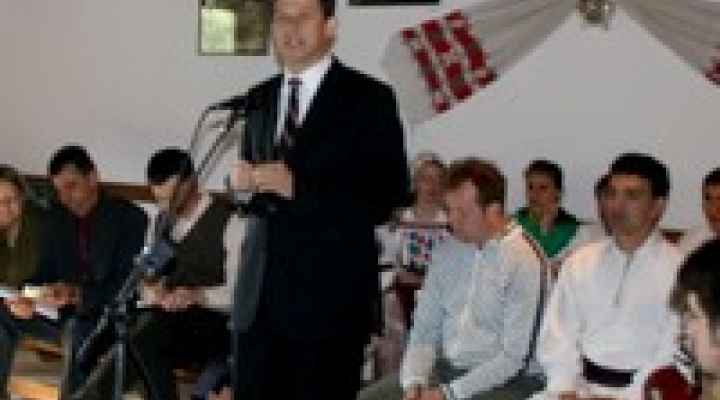Ten years of Hungarian language education for the Csángó community
Since then the education programme has provided the Csango youth with the possibility of Hungarian language tuition. The achievements of the last ten years were celebrated on May 8th in Lunca de jos with the participation of MEP Csaba Sógor who has been a long-time supporter of the Csángó cause.
The education programme started ten years ago and (thus) began a process aimed at stopping the assimilation of Csángó people – said Attila Hegyeli, the leader of the programme. In his speech he pointed out that they are currently teaching Hungarian to 1600 Csángó children, but there have been thousands of other participants over the last ten years and the organizers have also tried to provide them with the opportunity to continue their studies in their mother tongue.
Adrián Salamon, President of the Association of Csángó Hungarians in Moldavia expre ssed their thanks to all the teachers who have contributed with their activities to the success of the education programme. He emphasized the important role teachers will continue to play because there still are around thirty settlements where Hungarian speaking children live and the programme hasn’t been extended to.
Five years ago MEP Csaba Sógor became one of the first to enroll in the “Become a Godparent!” programme started by the Association of Csángó Hungarians in Moldavia in order to aid the tuition of Csángó children.
- The Hungarian language education programme in Csángó communities and the possibility to teach the Hungarian language in Romanian schools is a model to follow in the Carpathian basin. This is the merit of civil society as well. The local community realized that it has to make the best out of the opportunities available locally while there is no solution to their problems on a central level – said the MEP.
In his speech, Csaba Sógor greeted the teachers involved in the programme because they still have to face lots of challenges in order for the Csángó Hungarians to have a future, not only a past.











